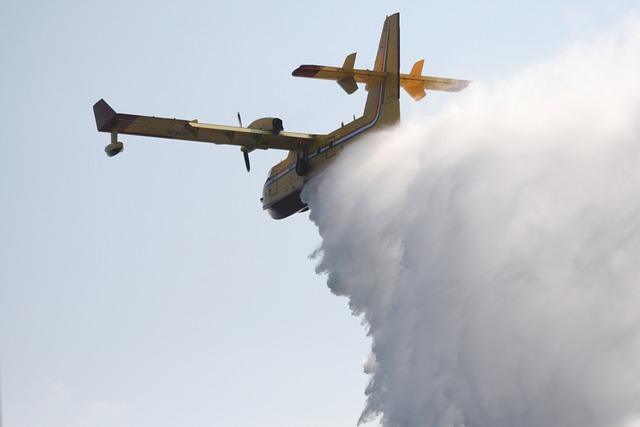
The EU has recently announced an Ambitious Plan for the Purchase of New Fire Fighting Planes in order to Strengthen the Response Capacity to the Increasingly Serious Crisis Related to the Forest Fires which have Devastated Part of the Continent’s Tourist Areas in Recent Months.
Climate change has intensified the frequency and intensity of forest fires across Europe, putting strain on member countries’ law enforcement resources. The new investment envisaged by the European Commission testifies to the commitment to protect forests, prevent environmental disasters and promote sustainability.
In recent years, Europe has witnessed an increasing frequency of forest fires, causing significant damage to the environment, wildlife and local communities. Global warming and the increasingly dry summer seasons have favored the spread of fires especially in countries rich in tourist areas that are highly frequented during the summer, making it more difficult to control and put them out. In 2019, in particular, the continent experienced one of the worst bushfire periods in recent history, with nations such as Spain, Italy, Portugal, Greece and Sweden severely affected. These events have caused the loss of thousands of hectares of forest, threatening biodiversity and the conservation of natural habitats.
To face this growing threat, the European Union has decided to intervene with an investment plan aimed at the purchase of new fire-fighting aircraft, specially designed for the fight against forest fires and equipped with cutting-edge technologies for surveillance, detection and extinguishing of flames. The EU plan includes working with member countries and strategic partners to ensure widespread coverage across Europe. These aircraft will be deployed in the regions most at risk, and will be able to intervene promptly to contain the fires and prevent them from spreading uncontrollably, as has happened in recent months.
The new aircraft will be equipped with cutting-edge technologies, including high-precision sensors for detecting heat sources, thermal cameras and advanced surveillance systems. These features will enable constant monitoring of vulnerable areas, allowing for a rapid and targeted response to fires as they occur. In addition, these aircraft will be equipped with large dedicated tanks, capable of carrying a significant amount of water or extinguishing agents, allowing pilots to perform an even greater number of release operations in a single flight, maximizing the effectiveness of the shutdown procedures and reducing the time required to replenish.
A rapid response to forest fires will help contain the flames before they spread out of control, significantly reducing the extent of damaged areas and thus preserving biodiversity and natural habitats. The positive impact of a similar evolution will affect the conservation of animal and plant species, some of which may be at risk of extinction, and the protection of the cultural and touristic heritage of the regions affected by the fires. Many places, recently affected by the drama of wildfires, often of malicious nature in Europe, are famous for their scenic beauty and their unique ecosystems and their preservation will not only benefit the environment but will also contribute to the economic growth of local communities that depend on the tourism.
Climate change is exacerbating the threat of forest fires in Europe and the need for timely and effective responses is ever more urgent. The EU investment represents a significant step towards promoting environmental sustainability and resilience against natural disasters, demonstrating the will to act jointly to protect the old continent’s precious biodiversity and preserve it for future generations who will want and hopefully know how to protect it better than they have done up to now.
Alessandro Fiorentino



 Subscribe
Subscribe